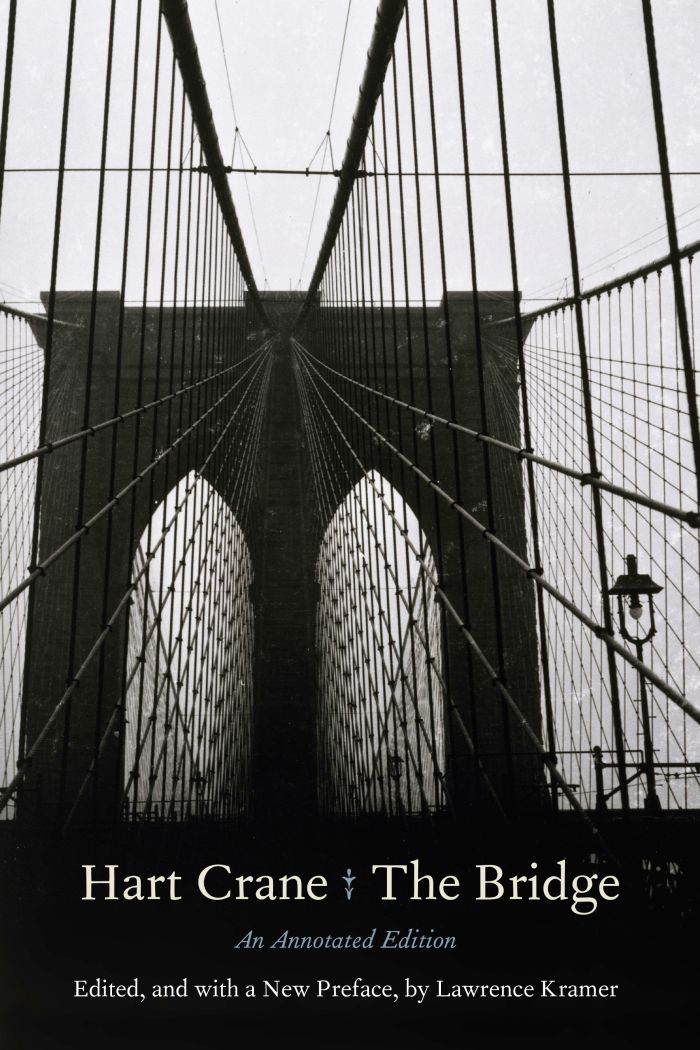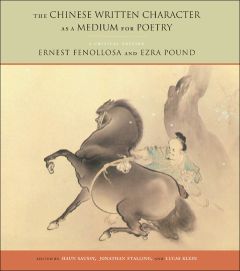The Bridge
An Annotated Edition

This book can be opened with

Hart Crane’s modernist masterpiece The Bridge has steadily grown in stature since its 1930 publication. Once dismissed by influential critics as a noble failure, a view that hardened into conventional wisdom, it is now widely regarded as one of the major achievements of twentieth-century American poetry. The poem unites mythology and modernity to reckon with the promises, kept and broken, of American experience.
The Bridge is challenging in the best sense, exacting and ultimately rewarding. Beloved yet often misunderstood, it threads indirect and finely grained allusions through period-specific references to 1920s life that can elude contemporary readers. Crane’s elaborate compound metaphors braid disparate sources, making the poem’s movement at times hard to track. Its topical and geographic markers call not only for identification but for explanation. Without specialized knowledge, much of it not readily available even online, many passages remain opaque.
Until now, there was no single, convenient resource to help readers unlock Crane’s vision. This book is that guide. Its detailed, far-reaching annotations make The Bridge fully accessible, whether you are a scholar, a student, or a devoted reader of poetry.
“Hart Crane’s The Bridge is generally agreed to be one of the great long poems of the early twentieth-century, but its obscure allusions and habitual double entendres have made it a difficult poem to digest. Lawrence Kramer’s excellent annotated edition, produced with the help of a devoted group of graduate students, thus fills what is a real lacuna. Not only are Kramer’s annotations deeply learned and precise; they also display great tact and common sense, refusing to overwhelm us with data or tangential matter. No student of Hart Crane—indeed no lover of Modernist poetry—will want to be without this necessary edition of The Bridge.”—Marjorie Perloff, Stanford University
“No great poem is more deceptively titled than The Bridge, a work whose restless dynamics exceed all architectural containment. Hart Crane set out to celebrate America but what he produced was a rhapsody to New York City, conceived as a fount of immense power and ideal perch for assessing national values in a ‘Jazz Age.’ And now, under Lawrence Kramer’s capacious annotation, The Bridge expands into its fullest dimensions, becoming historical fantasia, dream-text, combative retort, personal document, national epic, queer libretto, and machine-age homage. Frank O’Hara’s claim that Crane’s writing is ‘better than the movies’ is exuberantly realized in Kramer’s detailed dramaturgy.”—Edward Brunner, author of Splendid Failure: Hart Crane and the Making of The Bridge
Hart Crane (1899-1932) was one of the preeminent poets of American modernism.
Lawrence Kramer (Edited By)
Lawrence Kramer is Distinguished Professor of English and Music at Fordham University. He is the author of fifteen books and editor of Walt Whitman’s Drum-Taps: The Complete 1865 Edition (NYRB, 2015) and Lola Ridge’s The Ghetto and Other Poems: An Annotated Edition (Fordham, 2023).
Illustrations | vii
Acknowledgements: The Editorial Assistants | ix
Sources | xi
Preface to the Paperback Edition
Crane and Columbus: A Historical Pursuit | xiii
Annotating The Bridge | xxi
Lawrence Kramer
To Brooklyn Bridge | 1
I. Ave Maria | 7
II. Powhatan's Daugher | 19
The Harbor Dawn | 21
Van Winkle | 27
The River | 33
The Dance | 44
Indiana | 53
III. Cutty Sark | 59
IV. Cape Hatteras | 69
V. Three Songs | 87
Southern Cross | 89
National Winter Garden | 93
Virginia | 97
VI. Quaker Hill | 101
VII. The Tunnel | 111
VIII. Atlantis | 125




